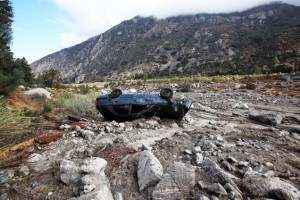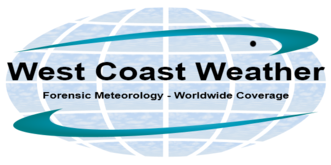What is Forensic Meteorology?
By Michael FaginGeneral Info, Historical Weather DataWith 0 commentsWhat’s in the past is in the past, so why focus on yesterday’s weather? Understanding what the weather was yesterday, last week, or even farther back in time can be immensely useful for a variety of purposes. Insurance companies solving disputes, attorneys using scientific testimony in court, airlines and government rely on forensic meteorologists to use weather data records – satellite, radar, surface observations, eye witness accounts, etc. – to determine what the weather was like at any given location and time. What would be interesting is to determine the weather conditions that caused the car to end up in this position (Image credit: AP/Nick UT)

Forensic meteorologists perform scientific research, make models and occasionally perform tests to reach their conclusions before creating customized presentations and demonstrating them. If necessary, they may visit the scenes of past events to fine tune their determinations of the roles that weather played.
In the US, they are bound by the Federal Rules of Evidence, specifically by Rule 702:
A witness who is qualified as an expert by knowledge, skill, experience, training, or education may testify in the form of an opinion or otherwise if:
(a) the expert’s scientific, technical, or other specialized knowledge will help the trier of fact to understand the evidence or to determine a fact in issue;
(b) the testimony is based on sufficient facts or data;
(c) the testimony is the product of reliable principles and methods; and
(d) the expert has reliably applied the principles and methods to the facts of the case.
Written by Meteorologist Goeff Linsley
